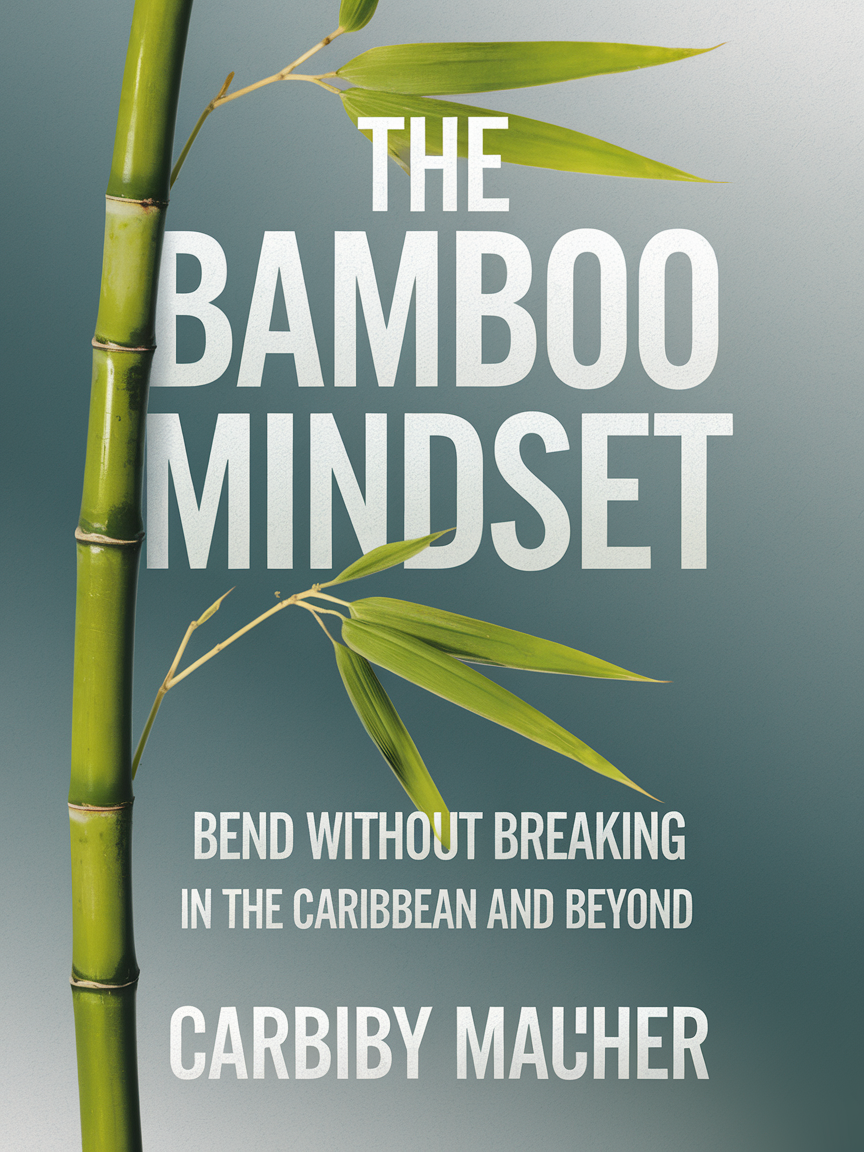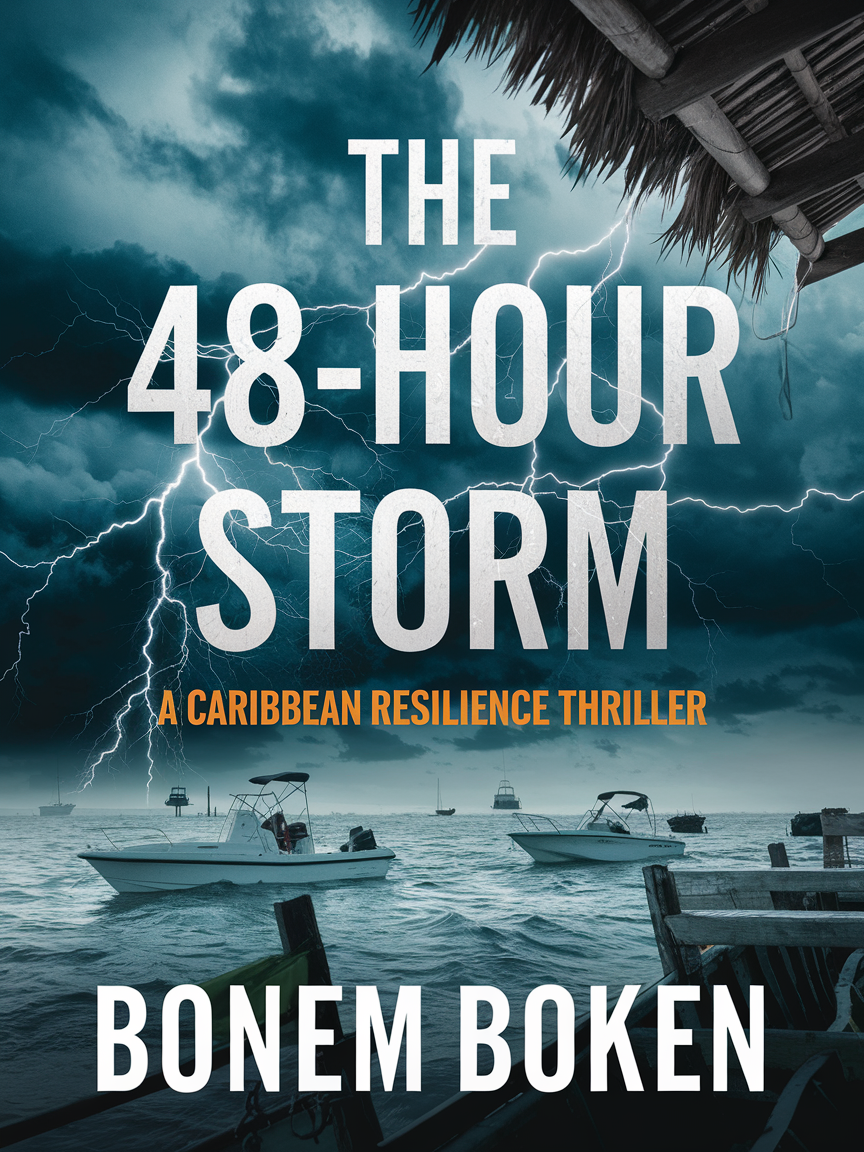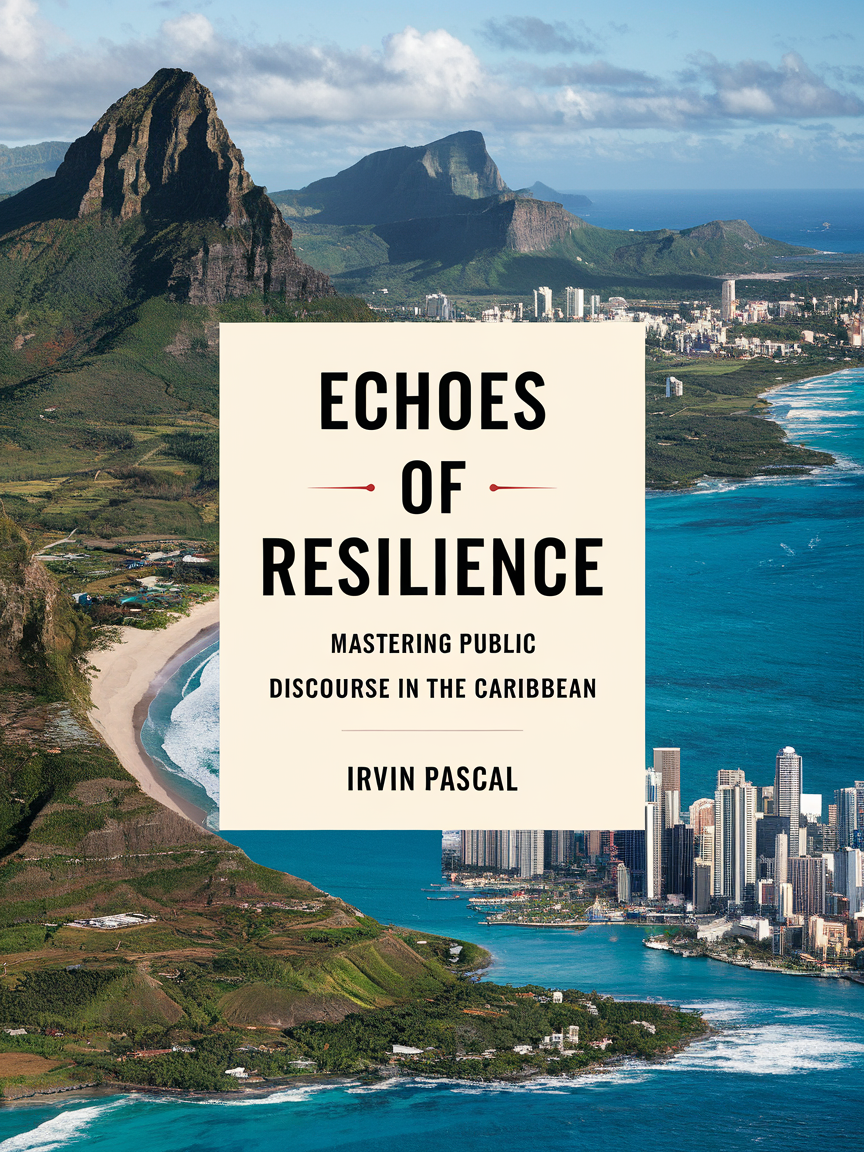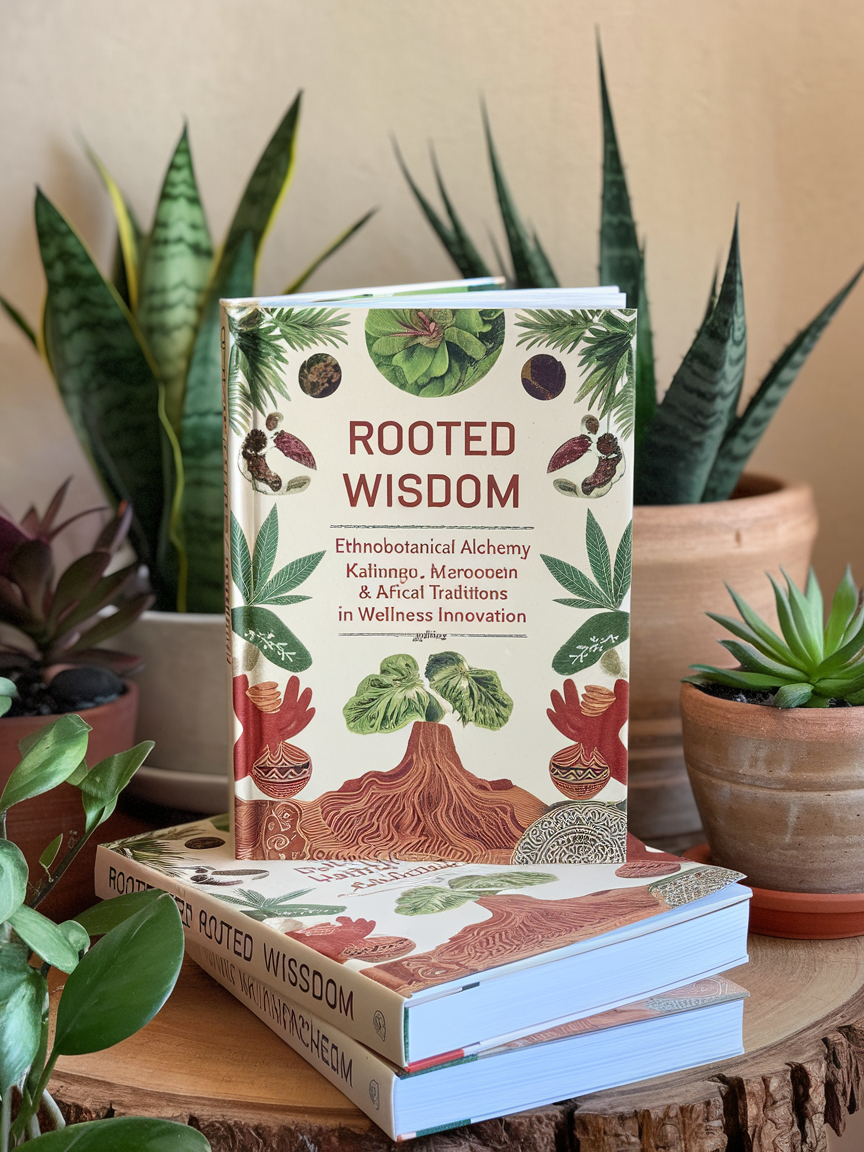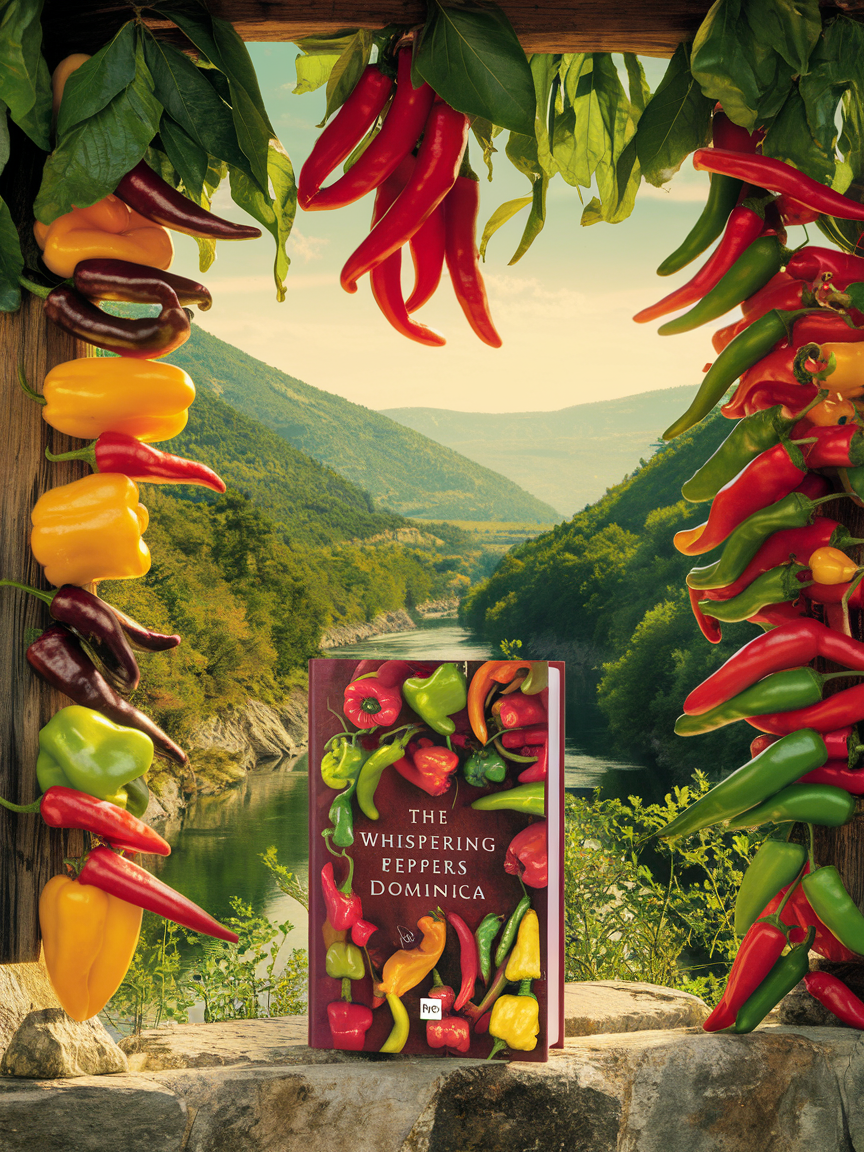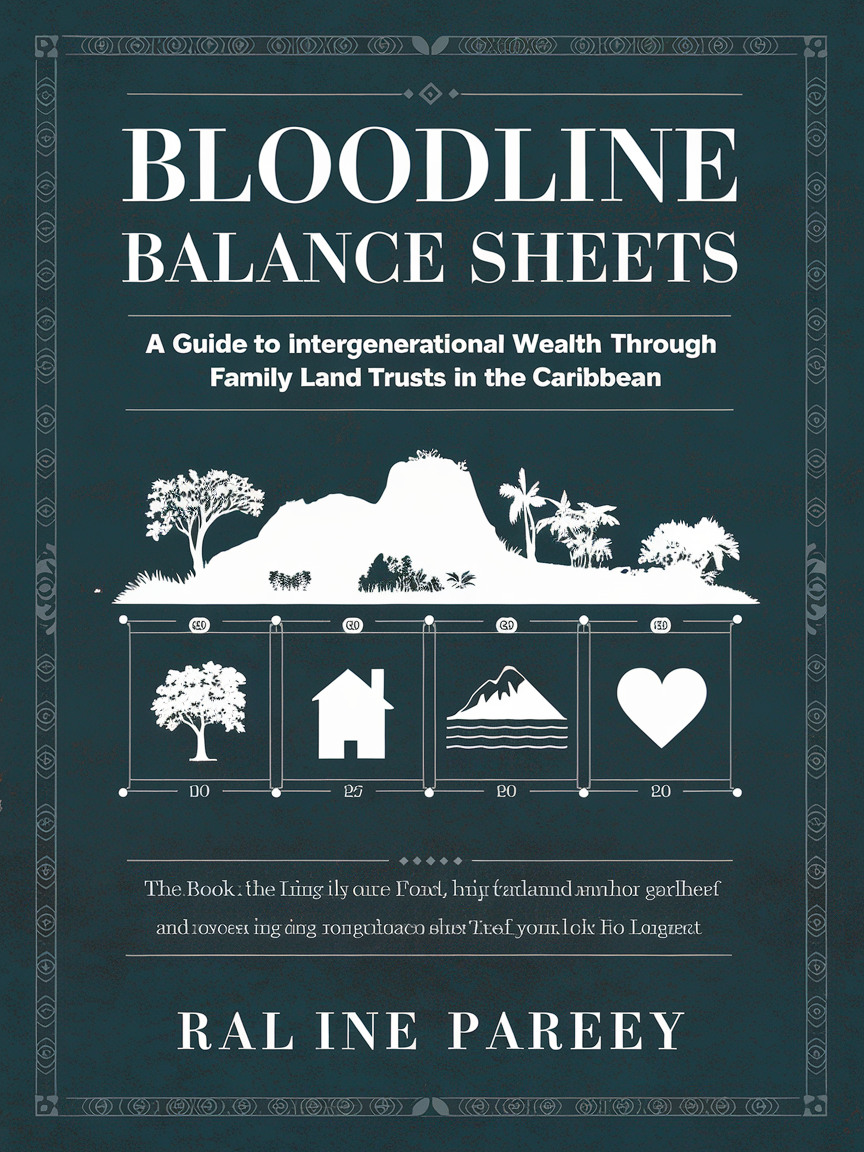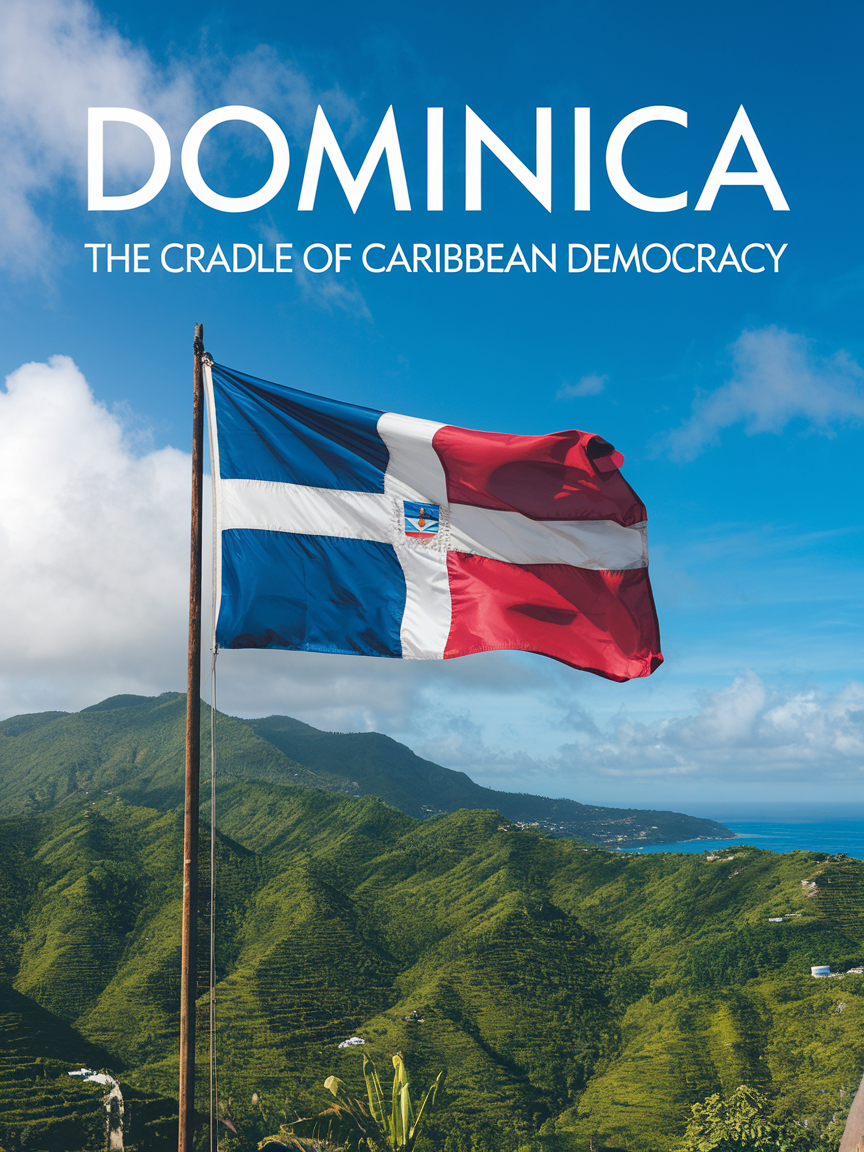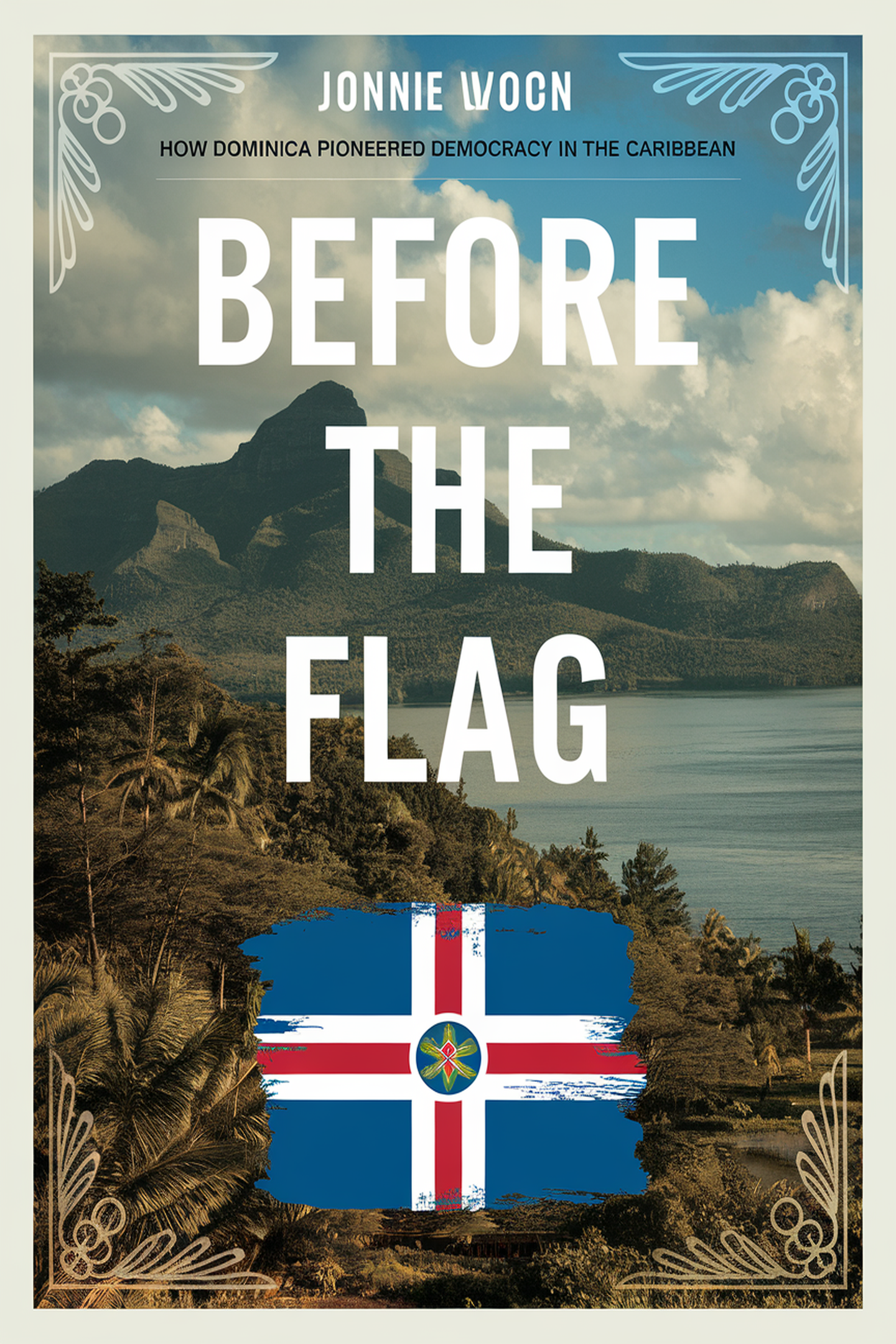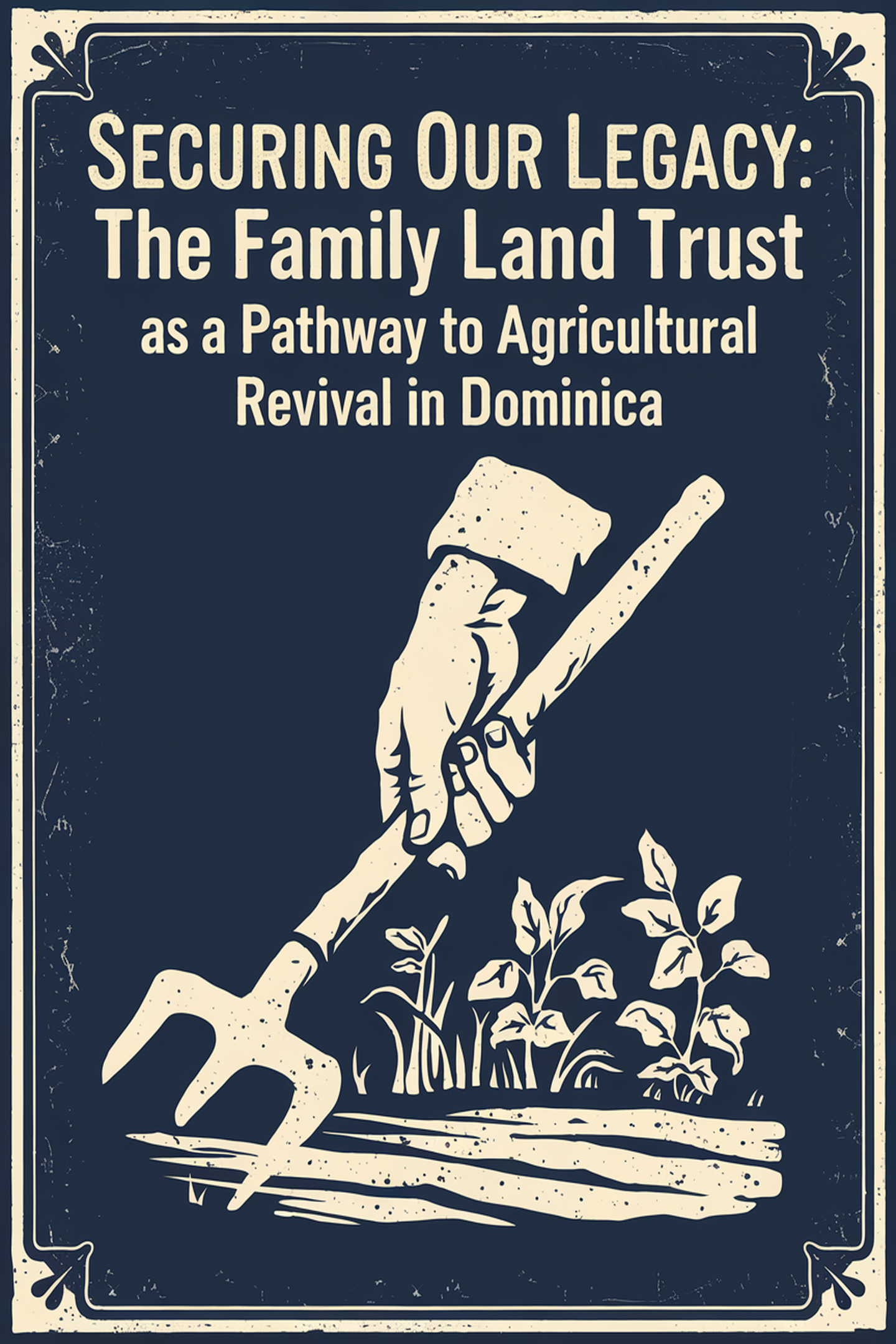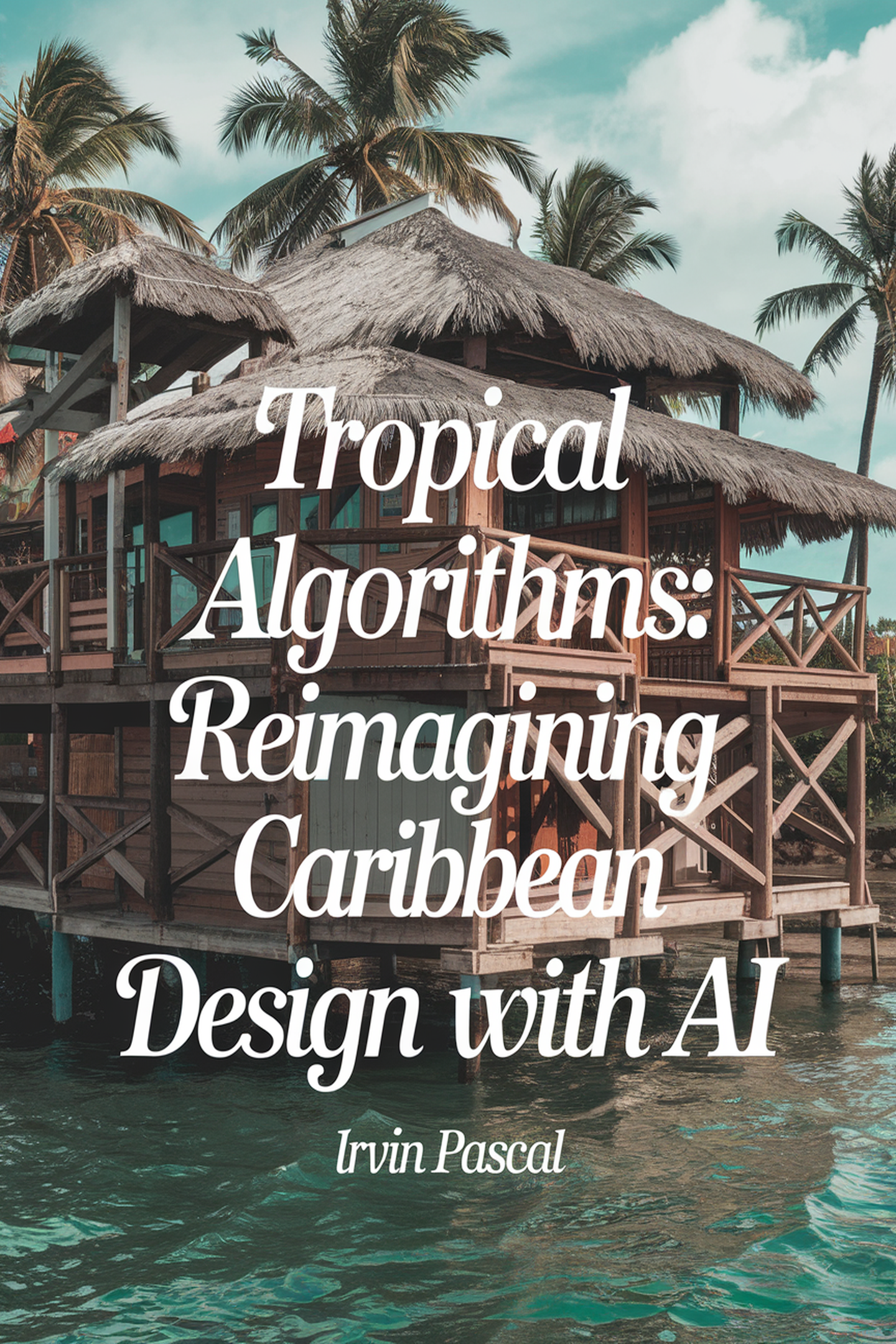This book offers a really practical approach to a common problem for heirs.
The idea of the Family Land Trust is quite innovative and addresses the core issues of fragmented ownership well.
Pascal lays out a clear four-phase plan that feels achievable for someone willing to put in the work.
I appreciated the inclusion of templates and actionable strategies throughout the manual.
It was helpful to see how the author connects revitalizing land to cultural heritage and national food security.
While the guide is thorough, some sections felt a bit dense for an everyday reader.
The transition from the specific Layou Park focus to a national model was a bit abrupt at times.
Overall, it's a valuable resource for anyone facing similar inherited land challenges in Dominica.
It could benefit from more personal stories to illustrate the transformation process.
The practical advice is sound, but the emotional resonance could be stronger.
It's a solid how-to guide, though not a casual read for pure entertainment.
I’d recommend this to specific audiences who are looking for structured guidance on land revival.
"Reclaiming Our Roots" offers a well-intentioned approach to a complex issue, but its execution is somewhat uneven.
The core concept of the Family Land Trust is innovative, though the practical implementation details could be clearer for the average reader.
The manual's structure is logical, following a four-phase plan, but the pacing sometimes feels rushed in the later sections.
Pascal's passion for his subject is evident, yet the writing style remains somewhat dry and academic for a how-to guide.
While the book provides valuable insights into land inheritance challenges in Dominica, the emotional resonance is limited.
The practical templates are a definite strength, offering tangible resources for heirs.
However, the legal complexities are explained in a way that might still require further expert consultation.
The overarching goal of creating a replicable national model is ambitious and commendable.
Ultimately, "Reclaiming Our Roots" serves as a useful starting point for those facing similar land inheritance issues.
It's a book with potential, but could benefit from more accessible language and a deeper exploration of emotional barriers.
Irvin Pascal's "Reclaiming Our Roots" offers a truly valuable and thoughtfully structured guide for heirs dealing with inherited land challenges.
The book's core innovation, the Family Land Trust model, provides a clear and practical framework for overcoming complex ownership issues.
Pascal meticulously outlines a four-phase Master Plan, making the daunting task of land revival feel manageable and achievable.
I appreciated the actionable strategies and templates provided, which felt genuinely helpful for anyone embarking on this journey.
While the focus is specific to Dominica, the underlying principles of collaborative land management and legacy preservation have broader relevance.
The practical advice on agroforestry and value-added marketing is especially insightful for making land productive.
My only slight reservation is that some of the legal aspects, while explained well, could be dense for a reader unfamiliar with such matters.
Overall, this is a deeply inspiring and empowering manual for reconnecting with heritage and transforming inherited land into a source of prosperity.
Pascal's passion for his subject shines through, making this more than just a how-to guide; it's a call to action for a brighter future.
I found the book to be an excellent resource for anyone seeking to revitalize family land and build a sustainable legacy.
This guide offers a solid foundation for anyone interested in mushroom cultivation in Dominica.
It meticulously outlines the technical steps for growing Lion's Mane and Reishi, which is very helpful.
The section on value addition, like creating powders and tinctures, was particularly informative.
I appreciated the focus on economic development and leveraging Dominica's climate.
However, some of the business strategy parts felt a bit generalized.
It would have been beneficial to see more in-depth case studies or real-world examples of challenges overcome.
The writing is clear and functional, suitable for a how-to guide.
It successfully bridges the gap between scientific knowledge and practical application.
For someone starting from scratch, this book provides essential, actionable steps.
I'd recommend it to aspiring farmers and entrepreneurs in the region looking for a comprehensive starting point.
It does a good job of detailing the cultivation process itself.
The overall vision for Dominica's role in the global market is inspiring.
Dominica's Medicinal Mushroom Gold offers a unique focus on cultivating high-value mushrooms within a specific regional context.
The step-by-step cultivation instructions are clear, though some sections could benefit from more detailed visual aids for beginners.
Pascal's writing style is informative and practical, effectively bridging scientific principles with business application.
The book successfully highlights the economic and environmental potential of mushroom farming in Dominica, its primary theme.
Readers seeking a business-focused guide to medicinal mushrooms will find valuable information here.
The emphasis on value addition and global market access is a significant strength.
However, the narrative could be more engaging to maintain reader interest throughout.
Some readers might find the financial projections aspirational rather than concrete steps for initial investment.
The guide fulfills its promise of being a comprehensive manual for aspiring mushroom entrepreneurs.
It effectively promotes sustainable development and Dominica's agricultural potential.
The integration of Dominica's unique identity into the business strategy is well-articulated.
While solid, the book could be enhanced by a more robust appendix of resources for sourcing materials.
This guide offers a unique and ambitious vision for Dominica's agricultural future through medicinal mushrooms.
Pascal clearly lays out the cultivation process for Lion's Mane and Reishi, which is very practical.
I appreciated the focus on value-added products like powders and tinctures, a strong business angle.
The book's economic development framework felt especially relevant for aspiring entrepreneurs in the region.
However, I found the transition between cultivation steps and broader business strategy could have been smoother.
Some sections felt a bit dense with technical jargon, which might be intimidating for absolute beginners.
The author's passion for the subject and Dominica is evident throughout the text.
It’s a solid resource for those committed to this specific agricultural niche, though some might need supplemental reading.
The emphasis on sustainability and leveraging the island's brand is a significant strength.
It's an encouraging read for anyone looking to enter this specialized farming sector.
The book successfully bridges a knowledge gap and offers a clear roadmap.
Overall, it's a commendable effort with a lot of valuable information.
This guide offers a truly practical approach to understanding micro-entrepreneurship.
The step-by-step instructions for business planning and financial management were particularly helpful.
Pascal's ability to break down complex accounting concepts into digestible advice is a major strength.
I appreciated the inclusion of templates and checklists that make immediate application possible.
While the book is comprehensive, some sections on marketing strategies could have been more detailed.
The real-life success stories provided a good dose of inspiration and context.
It’s a solid resource for anyone in Dominica or elsewhere looking to start a small business.
The emphasis on building a resilient mindset is a valuable takeaway for aspiring entrepreneurs.
Overall, it's a well-structured and informative eBook that delivers on its promise.
I would recommend this to anyone needing a clear roadmap for their entrepreneurial journey.
Irvin Pascal's "Entrepreneurship 101" offers a solid foundation for aspiring micro-business owners.
The guide's strength lies in its comprehensive approach to the practical steps of starting a venture.
Pascal's background as a chartered accountant is evident, bringing a welcomed financial rigor to the content.
The inclusion of templates and checklists significantly enhances its usability and actionable nature.
However, the narrative could benefit from more dynamic real-life case studies to illustrate concepts.
While informative, the pacing sometimes feels a bit too textbook-like, lacking an engaging flow.
The focus on Dominica is a unique aspect but might limit broader appeal for a global audience.
Overall, it's a valuable resource for those seeking a structured, no-nonsense guide to micro-entrepreneurship.
It serves its purpose of demystifying the process, especially for beginners with limited budgets.
The book successfully addresses common challenges, providing practical solutions.
This guide offers a truly comprehensive approach to micro-entrepreneurship.
Pascal skillfully breaks down complex business concepts into actionable steps.
The inclusion of templates and worksheets makes the learning process highly practical.
I particularly appreciated the focus on building resilience and overcoming common challenges.
The real-life success stories provided a great source of inspiration and practical examples.
This book is an excellent resource for anyone in Dominica looking to start or grow a small business.
It effectively bridges the gap between ambitious ideas and tangible execution.
The emphasis on sustainable growth ensures readers are equipped for long-term success.
Pascal's background as a chartered accountant lends significant credibility to the advice.
The structured format makes it easy to navigate and reference specific topics.
It is a valuable tool for fostering confidence in aspiring entrepreneurs.
I highly recommend this eBook to anyone venturing into the world of micro business.
This guide offers a solid foundation for understanding leather processing, though it could benefit from more visual aids.
The step-by-step instructions are generally clear, but some stages felt a bit rushed for a beginner.
I appreciated the focus on eco-friendly practices and leveraging local resources in Dominica.
Pascal's commitment to empowering artisans is evident throughout the book's thematic content.
The technical explanations were mostly accessible, making the process seem achievable.
Some of the chemical processes, while explained, might still require further research for full comprehension.
The blend of traditional and modern techniques is a strong selling point for this guide.
It provides a good overview of the entire tanning lifecycle, from hide to finished product.
While comprehensive, I wished for more detailed troubleshooting tips for common tanning issues.
The introduction to ethical sourcing was a particularly well-done section.
This book is a valuable resource for anyone interested in starting leatherwork with a conscience.
It could be improved with diagrams or photographs to illustrate key procedures more clearly.
This guide offers a commendable attempt at demystifying the leather tanning process with a focus on local resources.
The step-by-step instructions are generally clear, though some technical aspects could benefit from more visual aids to enhance understanding.
Pascal's commitment to sustainability and economic empowerment shines through the narrative, providing a strong ethical foundation.
The practical advice on sourcing and eco-friendly methods is particularly valuable for aspiring artisans in Dominica.
While the passion for the subject is evident, the writing occasionally feels more instructional than engaging.
Readers seeking a purely technical manual might find it perfectly adequate, but those looking for a more deeply immersive experience may be left wanting.
The emphasis on cultural heritage alongside modern techniques is a significant positive.
It successfully bridges the gap between traditional practices and contemporary market needs.
The sections on pre-tanning and various tanning methods are detailed and useful.
Overall, it's a functional resource for its intended audience, though room for refinement in presentation exists.
Irvin Pascal's guide is a truly insightful and practical resource that I found incredibly valuable.
It masterfully breaks down the complex process of tanning, making it accessible even to beginners.
The step-by-step instructions are clear, detailed, and build confidence throughout the learning journey.
I particularly appreciated the emphasis on ethical sourcing and eco-friendly methods, which felt very important.
Pascal skillfully weaves in the cultural significance and economic empowerment aspects for Dominica.
The explanations on pre-tanning, various tanning techniques, and finishing were thorough and well-explained.
While the guide is highly informative, some of the technical jargon could be a little dense at times.
However, this is a minor point in an otherwise excellent and inspiring publication.
It genuinely feels like an invitation to create something meaningful from raw materials.
I highly recommend this book to anyone interested in leathercraft or sustainable artisanal practices.
Irvin Pascal's "The Artful AI Interface" is a genuinely insightful guide that I found quite illuminating.
It breaks down the complexities of prompt engineering in a way that feels accessible, even for someone who just reads for fun like me.
The book's explanation of how to communicate effectively with AI models is practical and easy to follow, making the whole concept less intimidating.
I particularly appreciated how Pascal connects the art of prompt crafting to the creativity needed in industries like food and business in Dominica.
The way it's framed to empower readers to leverage AI for growth and innovation really resonated with me.
I learned a lot about how subtle language choices can lead to significantly different AI outputs.
It felt like a personal journey into understanding a powerful new technology.
I'd definitely recommend this book to anyone curious about AI, especially if they want to see its potential impact locally.
Irvin Pascal's "The Artful AI Interface" offers a foundational look at prompt engineering with a unique focus on Dominica.
The book clearly aims to democratize AI literacy, which is a commendable goal for technological advancement.
Pascal's approach to explaining prompt engineering, while accessible, sometimes lacks the depth needed for complex AI applications.
The use of local analogies, drawing parallels to cultivating flavors and building markets, is an interesting narrative device.
However, the practical guidance on crafting truly groundbreaking prompts could have been more detailed and varied.
The structure feels a bit uneven, with some sections being more explanatory than others.
While the ambition to empower readers is evident, the execution might leave some seeking more advanced techniques.
It's a solid starting point for those new to the field or wanting to understand AI's potential for development.
The writing is generally clear, making the core concepts digestible for a broad audience.
I found myself wishing for more concrete examples of prompt iteration and refinement.
Overall, it serves as a good introduction, particularly for its intended audience in Dominica and similar regions.
The book certainly sparks interest in AI's broader societal impact and economic possibilities.
Irvin Pascal's "The Artful AI Interface" is a genuinely insightful exploration of prompt engineering that I thoroughly enjoyed.
The book masterfully breaks down the complexities of communicating with AI, making it accessible for a wide audience.
Pascal's writing style is engaging and clear, effectively conveying technical concepts without being overwhelming.
The use of Dominica's context as a backdrop for AI adoption adds a unique and inspiring dimension to the discussion.
I particularly appreciated the emphasis on how precise language can unlock AI's potential for innovation and economic growth.
The guide provides practical strategies that I found immediately applicable to my own work with AI tools.
While the book offers a fantastic introduction, a few more advanced examples might have been beneficial for seasoned users.
Overall, this is a highly recommended read for anyone looking to harness the power of AI in a meaningful way.
Irvin Pascal's "The Leather Apparel Manufacturing Blueprint" is a truly valuable resource for anyone interested in leather goods.
It meticulously covers every step from initial design through to successful global sales.
Pascal's explanations are clear and incredibly detailed, making complex processes understandable.
I particularly appreciated the insights into sustainability and modern manufacturing techniques.
This book feels like having an expert guiding you through each stage of production.
It strikes a great balance between traditional craftsmanship and contemporary business needs.
The practical advice offered is extensive and highly actionable for aspiring entrepreneurs.
I learned a lot about the dedication required for quality leather apparel creation.
This is definitely a go-to guide for those serious about the industry.
It successfully bridges the gap between passion and professional execution.
The Leather Apparel Manufacturing Blueprint offers a thorough, albeit sometimes dry, exploration of the leather industry's technicalities.
While the step-by-step approach from design to quality control is commendable, the practical application feels somewhat theoretical.
The writing style is very informative and direct, but it lacks the narrative flair that might draw in a broader audience.
Pascal does an admirable job of covering sustainability and modern technologies, a valuable inclusion for contemporary manufacturing.
I learned a great deal about the detailed processes involved, though I wished for more real-world examples to illustrate the concepts.
Those deeply committed to the technical side of leather manufacturing will find substantial value here, but casual readers might struggle.
Irvin Pascal's "The Leather Apparel Manufacturing Blueprint" is an incredibly valuable resource for anyone serious about leather goods production.
The step-by-step guide from material selection to finishing is clear and comprehensive, covering essential technical aspects.
Pascal effectively bridges traditional techniques with modern needs like sustainability and automation, which is crucial.
I particularly appreciated the detailed explanations of different leather types and tanning methods, something often glossed over.
While the book provides a solid technical foundation, a few more real-world case studies of challenges and solutions would have been beneficial.
It’s a thorough manual that truly aims to empower creators and elevate the industry.
This book is a must-have for aspiring and established leather artisans and entrepreneurs alike.
It has certainly given me a much deeper understanding of the complexities involved.
I truly enjoyed learning about the integration of cultural artistry and slow fashion principles.
The focus on building brands with authenticity and responsibility is a standout element.
This guide provides a truly impressive roadmap for Dominica's luxury leather industry development.
Pascal meticulously breaks down complex business strategies into actionable steps for success.
The emphasis on leveraging Dominica's unique cultural heritage and eco-friendly positioning is a strong point.
I appreciated the detailed advice on securing investment and building an international brand presence.
The author’s background clearly informs the practical, finance-savvy approach throughout the book.
It’s more than just a how-to; it’s an inspiring call to action for national economic growth.
The focus on niche markets and artisanal skills is particularly insightful for creating a distinct brand.
I learned a lot about the intricacies of building a sustainable luxury industry from the ground up.
This book is an excellent resource for anyone interested in economic development or the luxury goods market.
It’s a highly recommended read for entrepreneurs, policymakers, and investors alike.
Pascal successfully outlines a vision for a prosperous and enduring industry for Dominica.
The strategies presented are realistic and address potential challenges head-on.
Irvin Pascal's "Dominica's Luxury Leather Legacy" offers a thorough, albeit somewhat dry, exploration of an ambitious economic vision.
The book meticulously details the steps required for establishing a luxury leather industry, though the practical application feels more theoretical than hands-on.
Pascal's writing is clear and structured, drawing heavily on his financial expertise to build a logical framework for his proposal.
While the core themes of sustainability and leveraging heritage are compelling, the narrative lacks a certain emotional resonance that would truly bring the vision to life.
The book functions well as a strategic document, but it doesn't quite capture the vibrant potential of artisanal craftsmanship it aims to promote.
Readers seeking a detailed business plan for niche luxury manufacturing might find value here.
However, those looking for an inspiring narrative or a guide with more personal anecdotes may be left wanting more.
It's a solid foundation for discussion, but perhaps not the definitive call to action it aspires to be.
The emphasis on global competitiveness is well-articulated throughout the chapters.
Pascal effectively outlines the necessary infrastructural and marketing strategies.
Ultimately, the guide serves as a comprehensive, if somewhat detached, roadmap.
It provides a good overview of the challenges and opportunities involved.
Irvin Pascal's "Dominica's Luxury Leather Legacy" is a truly inspiring and practical guide for anyone interested in economic development and niche market creation.
Pascal has crafted a meticulous roadmap, breaking down the complex journey of building a luxury leather industry from the ground up.
The book masterfully integrates Dominica's cultural heritage and natural resources as key selling points for eco-conscious luxury.
I particularly appreciated the actionable strategies provided for securing raw materials and cultivating artisanal skills.
The financial and entrepreneurial insights Pascal shares are invaluable for aspiring business owners and policymakers alike.
While the detailed plans for infrastructure development felt very thorough, a slightly more in-depth exploration of potential funding mechanisms could have been beneficial.
Overall, this book is a powerful call to action, offering a compelling vision for sustainable economic growth and national pride.
I highly recommend this guide to entrepreneurs, government officials, and anyone passionate about leveraging unique national strengths to achieve global competitiveness.
This book was a really good introduction to generative AI, making a complex topic feel quite approachable.
Irvin Pascal does a solid job of breaking down the core concepts without getting bogged down in jargon.
The examples of real-world applications, especially in creative fields, were particularly interesting to read about.
I appreciated the balanced perspective on the ethical considerations, which felt important to explore.
It definitely gave me a clearer understanding of what generative AI is and its potential impact.
While it touched on a lot, I sometimes wished for a bit more depth in certain application areas.
The writing style is conversational and easy to follow, which made it an enjoyable read.
Overall, it met my expectations for a guide aimed at a broad audience.
I would recommend this to anyone looking for a friendly starting point into the world of generative AI.
It certainly left me feeling inspired about the possibilities of this technology.
Irvin Pascal's "Unlocking Tomorrow: Your Guide to Generative AI" offers a remarkably clear and comprehensive overview of a complex subject.
The book effectively breaks down core concepts of Generative AI without sacrificing depth, making it accessible to a broad audience.
Pascal's writing style is analytical and precise, providing the detailed explanations needed for technological understanding.
The exploration of real-world applications, from content creation to scientific research, is particularly insightful and well-organized.
I appreciated the balanced approach to ethical considerations, presenting both the promise and the challenges of this technology.
The book successfully demystifies Generative AI, equipping readers with a solid foundation for further exploration.
It's an excellent resource for business leaders, students, and tech enthusiasts alike.
I found the discussion on societal impacts to be thought-provoking and necessary.
Overall, "Unlocking Tomorrow" is a highly valuable and engaging read for anyone interested in the future of technology.
Pascal's ability to synthesize complex information into digestible insights is a significant strength.
This guide truly lives up to its promise of unlocking the possibilities of Generative AI.
I would certainly recommend this book to anyone seeking to understand this transformative field.
I found "From Raw Hides to Luxury Goods" to be a really informative read.
The book lays out a clear path for building a leather business, from sourcing to selling.
I appreciated the detailed steps for setting up a workshop and understanding leather types.
The emphasis on sustainability and international market standards was particularly useful.
It truly feels like a comprehensive guide for anyone interested in this niche.
Pascal does a good job of explaining complex processes in an accessible way.
The vision of a Nigeria-Dominican Republic partnership is compelling and well-articulated.
I learned a lot about the business side of luxury leather goods.
It's a valuable resource for aspiring entrepreneurs in the Dominican Republic.
I would recommend this to anyone looking to enter the high-end leather market.
Irvin Pascal's "Unlocking Tomorrow" offers an engaging introduction to Generative AI, and I found its accessibility to be a significant strength.
The book effectively breaks down complex AI concepts, making them understandable for a broad audience, though some sections felt a bit superficial in their exploration of industry applications.
Pascal's writing style is clear and conversational, which helps keep the reader invested throughout.
The exploration of ethical considerations alongside the technology's potential provides a valuable perspective for understanding AI's societal impact.
I particularly appreciated the chapters on creative arts and content generation, which showcased practical uses of Generative AI.
While the book succeeds in demystifying the technology, I felt it could have benefited from more in-depth case studies to fully illustrate its transformative power.
It's a good starting point for anyone curious about AI's future but might leave those seeking advanced technical details wanting more.
Pascal clearly aims to inspire readers about AI's possibilities, and in that regard, the book is quite successful.
Overall, it's a solid primer for the uninitiated, offering a balanced overview of both the promise and challenges of Generative AI.
Irvin Pascal's "From Raw Hides to Luxury Goods" is an exceptionally thorough and well-structured guide.
The book masterfully details the entire process, from the initial sourcing of Nigerian leather to the final luxury product.
Pascal's writing is clear and instructive, making complex processes accessible to a broad audience.
The emphasis on technical expertise, sustainable practices, and international marketing is particularly valuable for aspiring entrepreneurs.
I learned a great deal about the intricacies of establishing a high-value leather goods business.
This guide offers a practical blueprint for economic partnership and artisanal development.
The attention to detail in covering everything from raw material grading to branding is commendable.
It successfully bridges the gap between raw potential and polished output.
The vision for economic growth and ethical production is inspiring and well-articulated.
This is a must-read for anyone interested in the global leather luxury market, especially with a focus on emerging economies.
Pascal has created an indispensable resource for fostering innovation and quality craftsmanship.
The actionable insights provided empower readers to build significant and lasting enterprises.
This guide offers a truly unique perspective on building a cross-border leather industry partnership.
The detailed walkthrough from sourcing hides to finished luxury goods is impressively thorough.
Pascal clearly outlines the technical steps, from leather grading to workshop setup, which is very valuable.
The emphasis on sustainability and international market strategies is a strong point for business-minded readers.
While the focus on the Nigeria-Dominican Republic connection is interesting, it does occasionally feel a bit niche.
I appreciated the practical advice on quality assurance and branding for aspiring entrepreneurs.
The book's ambition to foster economic growth through artisanal mastery is commendable.
However, for a general audience interested in leather craft without this specific partnership focus, some sections might be less relevant.
The clarity of the instructions for creating items like bags and wallets is a definite plus.
It's a comprehensive resource for anyone seriously looking to enter the high-value leather goods market.
